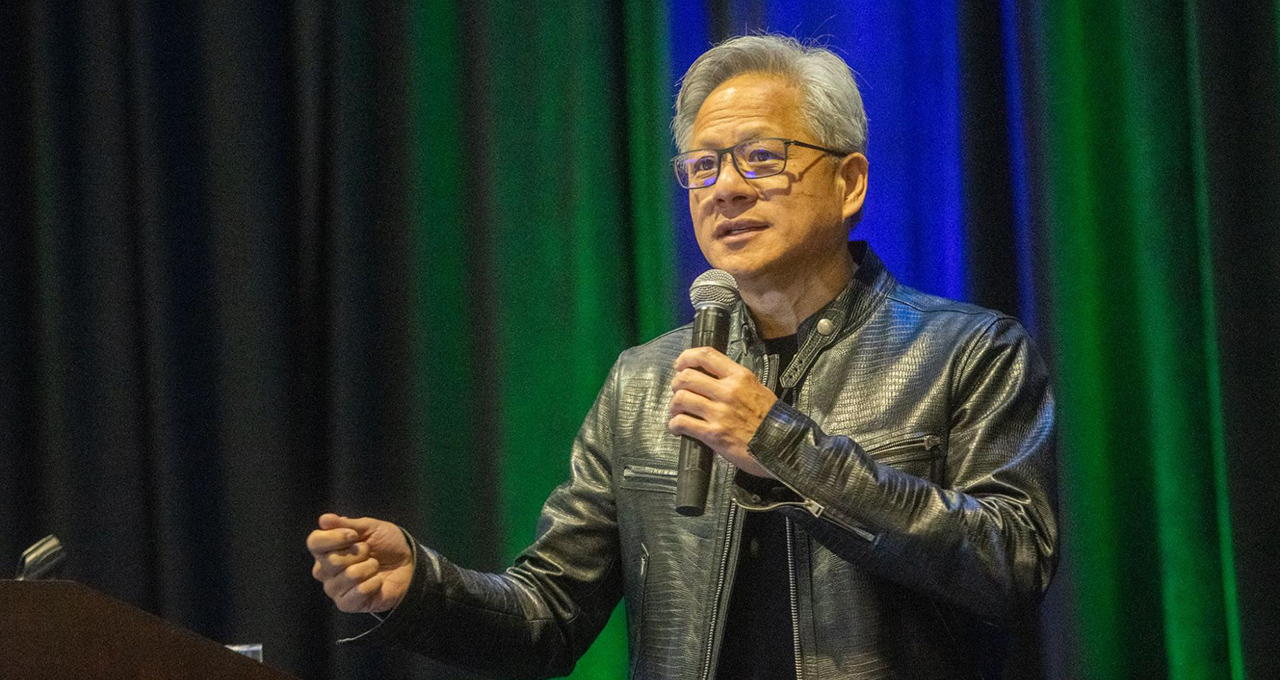
NVIDIA’s contributions to accelerating medical imaging, genomics, computational chemistry and AI-powered robotics had been honored Friday on the Precision Drugs World Convention in Santa Clara, California, the place NVIDIA founder and CEO Jensen Huang obtained a Luminary award.
The Precision Drugs World Convention brings collectively healthcare leaders, high world researchers and innovators throughout biotechnology. Its Luminary award acknowledges folks remodeling healthcare by advancing precision drugs within the clinic.
For practically twenty years, NVIDIA has superior computing in healthcare — working with researchers and trade leaders to construct devices that allow scientists to higher perceive life sciences, medical imaging and genomics.
“We constructed, if you’ll, a computational instrument. Not a gene sequencer and all of the unbelievable scientific devices that you just all discuss right here — in our case, it was a programmable scientific instrument,” Huang stated in his acceptance speech. “We constructed it in service of researchers and scientists as you try to higher perceive life in our universe.”
The primary use of accelerated computing in life sciences was within the 2000s — and the introduction of the NVIDIA CUDA parallel computing platform in 2006 paved the trail for researchers to exhibit how NVIDIA GPUs could possibly be utilized in medical imaging purposes like CT reconstruction.
“NVIDIA developed and continues to develop GPUs which might be on the coronary heart of AI and machine studying which might be altering the world, together with precision drugs,” stated Dr. Gad Getz, an internationally acclaimed chief in most cancers genomics and the director of bioinformatics on the Massachusetts Common Hospital, as he introduced the award.
Right now, NVIDIA AI and accelerated computing is “impacting evaluation, interpretation and translation of sequencing information, new sequencing applied sciences, imaging information, spatial applied sciences, single-cell genomics, proteomics, molecular dynamics and drug growth, in addition to the big language fashions that can be utilized by medical doctors, sufferers, college students and academics to be taught this subject,” Getz stated.
Advancing Precision Drugs With Accelerated Computing
Huang spoke in regards to the methods AI will help the work of medical doctors, scientists and researchers advancing drugs. By investing in AI, he defined, analysis organizations and companies can arrange a strong flywheel that constantly improves in accuracy, effectivity and insights by integrating further information and suggestions from each knowledgeable who interacts with it over time.
“Despite the fact that folks say you need people within the loop with AI, in actual fact, the other is true. You need AI within the loop with people,” Huang stated. “The rationale for that’s as a result of when the AI is within the loop with people, it codifies our life expertise. If there’s an AI within the loop with each single researcher, scientist, engineer and marketer — each single worker in your organization — that AI within the loop codifies that life expertise and retains it within the firm.”
Trying forward, Huang stated that “within the coming years, AI will advance with unbelievable velocity and revolutionize the healthcare trade. AI will assist medical doctors predict, diagnose and deal with illness in methods we by no means thought attainable. It’ll scan a affected person’s genome in seconds, figuring out dangers earlier than signs even seem. AI will construct a digital twin of us and mannequin how a tumor evolves, predicting which therapies will work greatest.”
“I wouldn’t be stunned if earlier than 2030, inside this decade, we’re representing mainly all cells,” stated Huang. “We’ve got a illustration of it, we perceive the language of it, and we will predict what occurs.”
Huang predicts that surgical robots will carry out minimally invasive procedures with unparalleled precision, robotic caregivers will help nurses and different healthcare professionals, and robotic labs will run experiments across the clock, accelerating drug discovery. AI assistants, he stated, will let medical doctors deal with what issues most to them: sufferers.
In his discuss, Huang additionally thanked the medical analysis neighborhood and highlighted how nice breakthroughs come from partnerships between expertise firms, researchers, biotech companies and healthcare leaders. Over 4,000 healthcare firms are a part of the NVIDIA Inception program designed to assist startups evolve sooner.
Study extra about accelerated computing in healthcare at NVIDIA GTC, a world AI convention happening March 17-21 in San Jose, California.